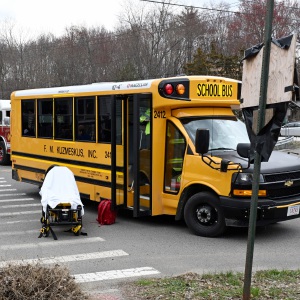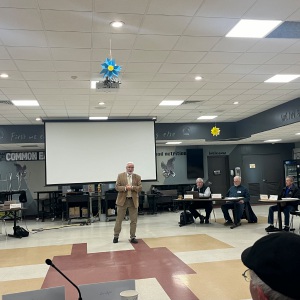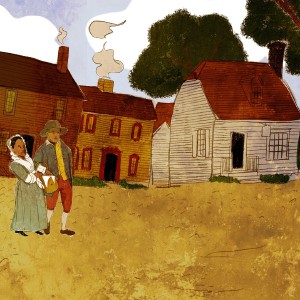My Turn: Enlightenment might have passed Louisiana by

Susan Wozniak
| Published: 06-26-2024 5:47 PM |
The 19th day of June saw Louisiana Gov. Jeff Landry sign into a law a requirement that the Ten Commandments be displayed in all public schools. The ceremony was held at Our Lady of Fatima Catholic School. Landry is a practicing Catholic.
I was immediately reminded of both the opening sentence of the First Amendment to the Constitution, “Congress shall make no law respecting an establishment of religion, or prohibiting the free exercise thereof; or abridging the freedom of speech, or of the press; or the right of the people peaceably to assemble, and to petition the Government for a redress of grievances” and of my experience teaching a composition class called Writing about Religion and Politics in America to college freshmen.
I always had my students fill out an anonymous survey on the first day of each semester. Those surveys asked about their English classes, what they have read, how much research they did and even if they learned to research. For this class, I asked them to identify the Protestant Reformation, the Counter Reformation, the Enlightenment and Martin Luther.
Of the 20 students, only the two who had uncles who were clergymen could identify the Reformation and its Counter. Most of the students thought I meant the civil rights leader Martin Luther King and not the man for whom the Lutheran Church was named. None of them could define the Enlightenment.
I gave a basic history lesson, defining the movements and how they inspired the 55 men who came together to create the Constitution.
I wondered and still wonder what sort of history is taught here in the state that leads the nation in education? While Massachusetts is considered No. 1, depending upon which survey you rely on, Louisiana could be anywhere between the 40th and the 42nd.
Not all history is well taught. Not all history texts are accurate. I was raised as a Roman Catholic and attended a Catholic high school during the early 1960s, which was like a college prep school. However, I remember an inaccurate statement in our American history text that the Civil War was not fought over slavery, but over states’ rights.
The reality was that factions claimed the right of a state to allow slavery within its borders, while other factions condemned slavery outright. Both sides supported their stands with passages from the Bible.
Article continues after...
Yesterday's Most Read Articles
 Vehicle collides with school bus causing minor injuries in Montague City
Vehicle collides with school bus causing minor injuries in Montague City
 UMass faculty calls on land grant universities to join in fight against Trump administration; McGovern, AG also weigh in
UMass faculty calls on land grant universities to join in fight against Trump administration; McGovern, AG also weigh in
 Franklin County Technical School Committee votes to oppose lottery system
Franklin County Technical School Committee votes to oppose lottery system
 Franklin County, North Quabbin groups send letter opposing pipeline expansion
Franklin County, North Quabbin groups send letter opposing pipeline expansion
 HS Roundup: Smith Academy baseball knocks off Mahar, 5-1
HS Roundup: Smith Academy baseball knocks off Mahar, 5-1
 Termination of $300K federal grant presents ‘an institutional setback’ for PVMA
Termination of $300K federal grant presents ‘an institutional setback’ for PVMA
During the early 1960s, there was friction between Catholics and Protestants, despite that both religions supported the Ten Commandments at the grassroots — or playground — level. There has been friction since Martin Luther spoke out against the Catholic selling of indulgences.
There had been friction within the Founders. Both Madison and Jefferson felt that governments should not support a religion. But when one reads their histories, one learns that they mixed politics and religion.
Consider, too, that there were immediate calls in the wake of the Louisiana law to defend the separation of church and estate. Americans United for Separation of Church and State, the American Civil Liberties Union and the Freedom from Religion Foundation issued a joint statement that this action violates the separation of church and state.
Part of the solution is to teach history. Most elementary school students are too young to be taught the Protestant Reformation and the Catholic Counter Reformation, but middle school students are not. To eliminate those historical movements is to handicap the students’ understanding of the world in which they are growing in.
The Enlightenment also needs to be taught, because the Founders were the product of the Enlightenment. If ninth grade students are taught American history, then 10th grade students should be taught the Enlightenment.
To be frank, not all the commandments apply to children. Elementary students do not create gods, of which there are many across the world, and they do not create idols. Because not all families are Christian, they do not keep the Sabbath. Because they are too young to marry, they cannot commit adultery. Pause here and remember the long list of politicians who cheat on their partners.
The commandments that children should learn is to behave as their parents wish; to not steal or to become obsessed (covet) with things others own; not to physically (add emotionally) hurt others, and not to lie.
Susan Wozniak has been a caseworker, a college professor and journalist. She is a mother and grandmother.






 My Turn: Raise every voice, every heart
My Turn: Raise every voice, every heart My Turn: Call us Cinderella Town
My Turn: Call us Cinderella Town Laura Josephs: Is a 170-foot cell tower really needed near Newton Elementary School?
Laura Josephs: Is a 170-foot cell tower really needed near Newton Elementary School? Marcia Schuhle: Much to do at Greenfield Senior Center
Marcia Schuhle: Much to do at Greenfield Senior Center
